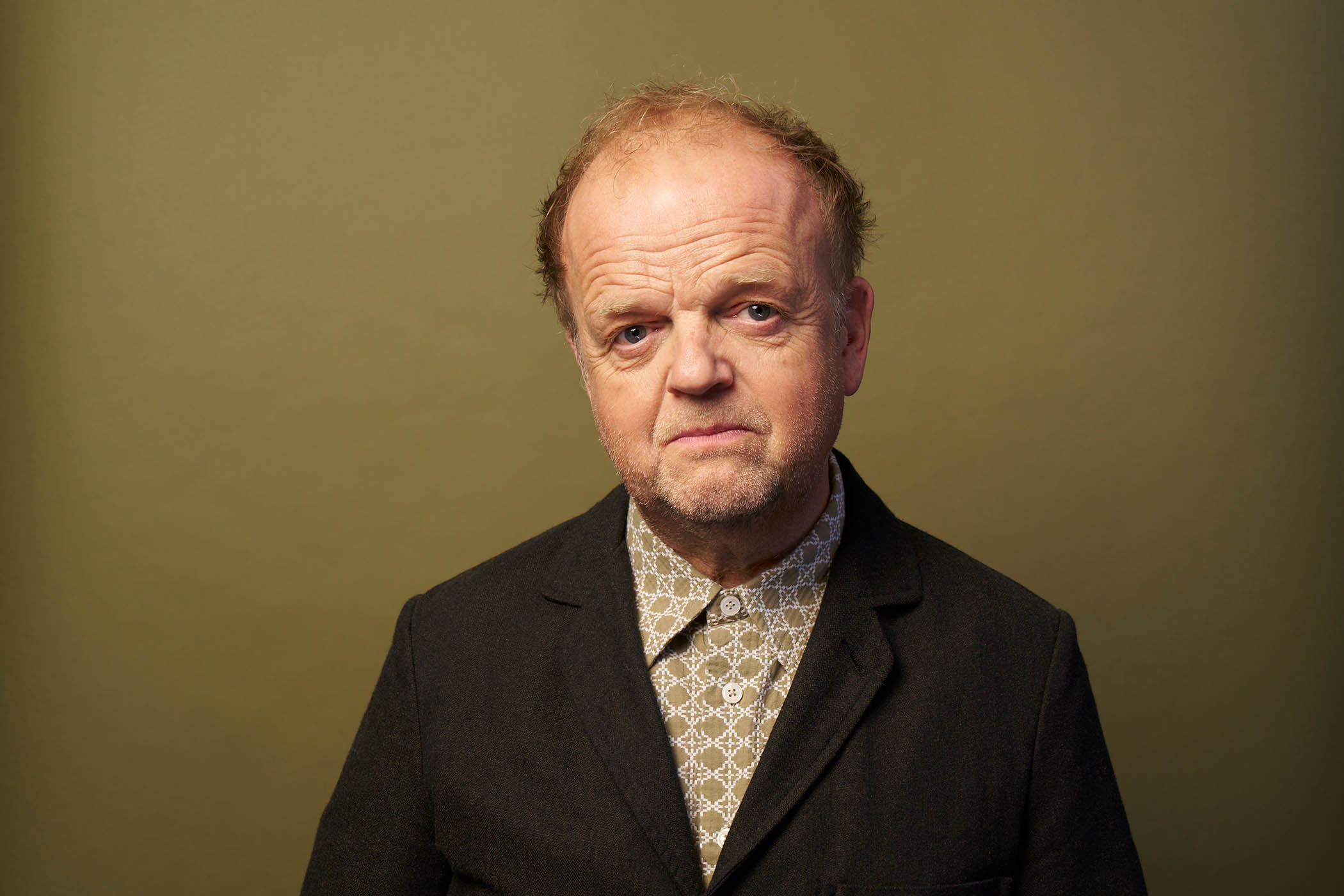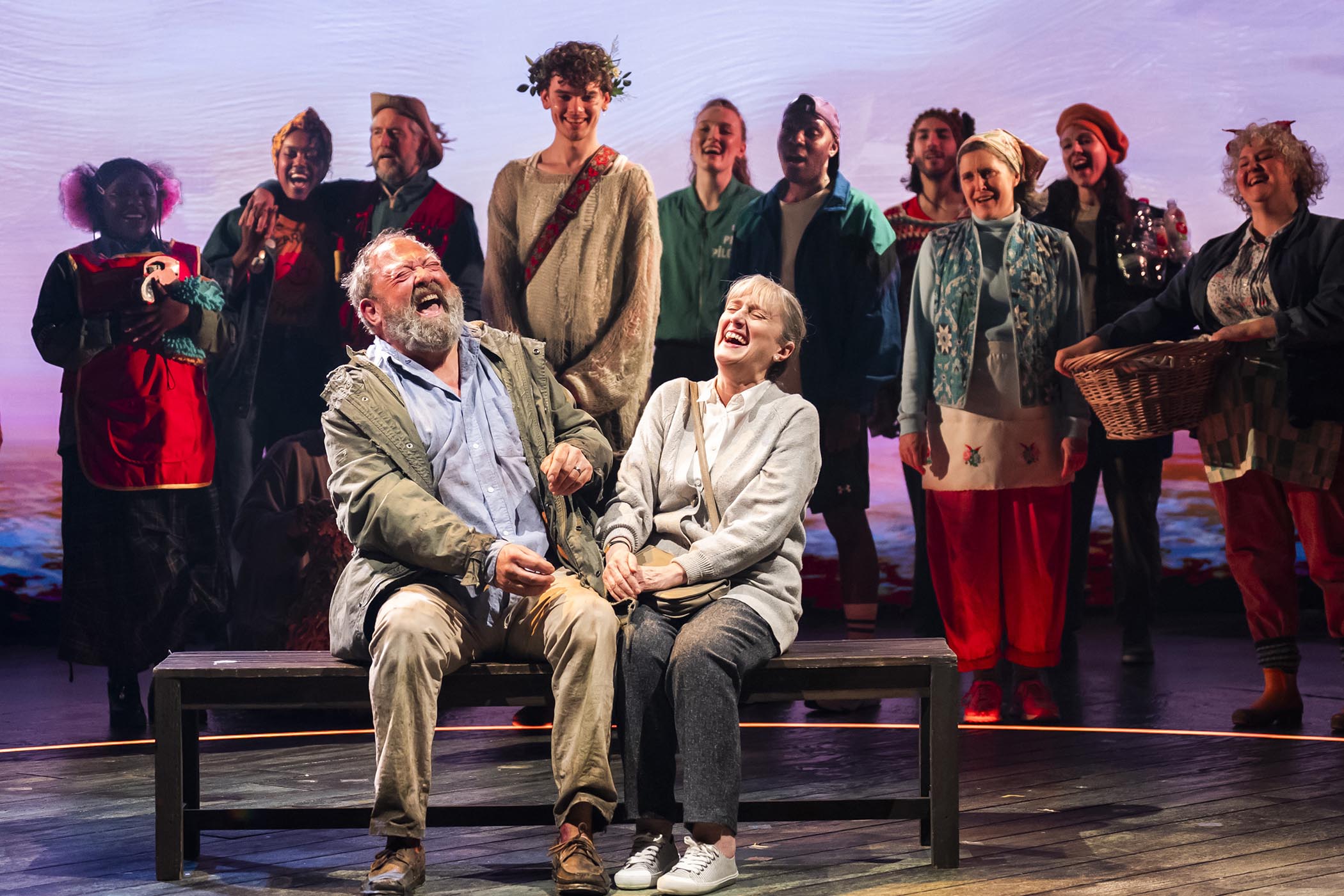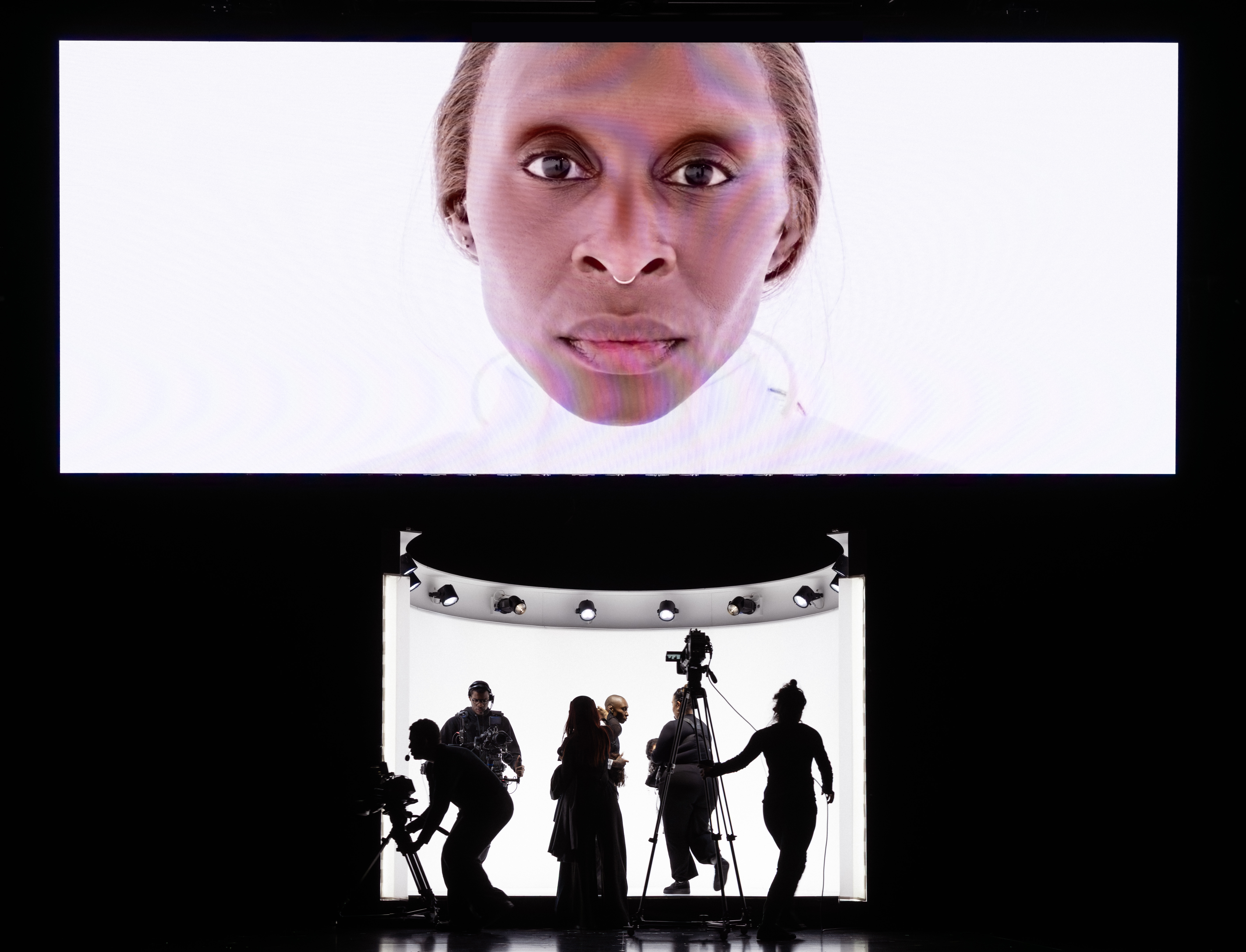Portrait by Suki Dhanda for The Observer
Toby Jones, 59, was born in west London and trained in Paris. He won an Olivier for his stage debut in The Play What I Wrote. His film credits include Tinker Tailor Soldier Spy, Dad’s Army, Berberian Sound Studio, The Hunger Games franchise and the voice of Dobby in the Harry Potter movies. On TV, he has won awards for Detectorists and Mr Bates vs the Post Office. He stars as the former Guardian editor Alan Rusbridger in ITV’s The Hack and is soon to return to the stage as Iago in Othello alongside David Harewood.
After playing good guys recently, is it fun to be the villain in Othello?
It’s funny. Whenever I play a villain, people go, “You always play villains.” Then you play Mr Bates and they say, “You’re always playing good people.” So I can’t win. I say, “Well, I also play house elves [Dobby]; where does that fit in?” There’s a strange desire with actors to try to pin down what they do. I just try to stay curious. The way to do that is to shift the challenge. There’s no getting around the fact that Iago is a bad man. But the range and register within that, from comedy through to sinister malevolence, is thrillingly diverse.
You haven’t done theatre for five years or Shakespeare for 20. What’s the scariest part?
They’re absolutely enormous, these plays. I got told that Iago is the third biggest role in all of Shakespeare. People keep trying to scare me with things like that.
How is Othello relevant today?
How Iago affects Othello and begins to poison his mind made us think about how one can sow certain toxic ideas into an audience. Iago spins half-truths to fit his own agenda. That feels very relevant. Complex issues in society are being simplified to the point of misinformation. It’s easy to exploit people by doing that.
What’s it like for your co-star David Harewood to revisit the role that made his name in 1997?
He spends lots of time gleefully laughing. It’s a chance for him to return to a great role as a totally different person. Originally he was in his early thirties, with all the pressure of being the first black actor to play Othello at the National. Now he’s an established actor in his late-fifties who has chronicled his own struggles. He’s enjoying tackling it afresh. He and Caitlin [FitzGerald, who plays Desdemona] are doing something very interesting with that relationship, which makes it all the more fun for me to poison.
How did you go about portraying former Guardian editor Alan Rusbridger in The Hack?
So much of acting is about persuading yourself that you’re that person. If you can do that, you’ll probably do a decent job. I’m fully aware that Alan and I aren’t terribly similar in height, looks or manner, so I took a leap of faith and immersed myself in Alanworld for a while. I read his books. He was very open to me going to Prospect magazine to watch how he handled editorial meetings. He’s not the typical, cliched newspaper editor because he’s softly spoken, calm and respectful. His authority comes from what he’s done and his quiet intellect, which he wears lightly. You can still see the schoolboy in him.
The Hack deals with invasions of privacy, which is an even bigger issue now. Could it have a similar real-world impact to Mr Bates vs the Post Office?
I’d love it to but I wouldn’t be so foolish as to predict. After Mr Bates and Netflix’s Adolescence, there’s more awareness of those issues but nothing concrete has happened. In fact, the social media bill has been watered down and subpostmasters’ compensation hasn’t been sorted yet; it’s still trapped in Whitehall. I was extremely proud of Mr Bates but I’ll only be happy when people stop dying before their cases are resolved and they get what’s due to them. It’s absolutely appalling.
After Bates and Rusbridger, are any other heroic Alans in the works?
These days, we need more and more! Alan Bates’s kind of heroism is semi-invisible. It’s about hard work and a dogged refusal to give in. Devoting your life to the cause of others means we don’t know about it. Up and down the country, everyday heroes are making a difference. It’s a challenge to make dramas about people who lead unshowy lives, but it doesn’t make them any less worth writing.
Is your work becoming more political as your career progresses?
I think all work is political. What you choose to participate in is, on some level, always a political decision. I’m not consciously thinking, “Is this politically relevant?” but I am thinking, “Does this drama make sense? What does it say? Is it moving the culture forward?”
Any sign of Detectorists returning?
Well, it’s not good news for fans. I’m thrilled people rewatch it and draw comfort from it. It offers an alternative to toxic male relationships. Most men dream of a life where they can meet their pals down the pub, go for a walk and shoot the breeze. That’s the real treasure Lance and Andy have. Having said that, I’ve told Mackenzie [Crook] that if he can sort out a stadium tour, I’ll be there with my metal detector [laughs].
What’s in the pipeline for you?
I’ve got [the second season of Apple TV+ thriller] Hijack coming out. We’re somehow going to shoot the second season of [Paramount+ crime drama] MobLand during the day while I’m doing Othello. And I’m continuing to write with my friend Tim Crouch. Our previous show, [BBC comedy] Don’t Forget the Driver, got scuppered by lockdown but we’ve licked our wounds and are writing something else now.
There are rumours of you playing Ian Hislop…
I don’t know anything about that. Who needs a drama about Ian Hislop? Another one I get confused with, because of our names, is Toby Young. People say, “You’re that rightwing guy aren’t you?” I go, “I’m really not.”
Othello opens at Theatre Royal Haymarket on 23 October. The Hack airs Wednesdays at 9pm on ITV1 and is available to stream in full on ITVX
Newsletters
Choose the newsletters you want to receive
View more
For information about how The Observer protects your data, read our Privacy Policy



